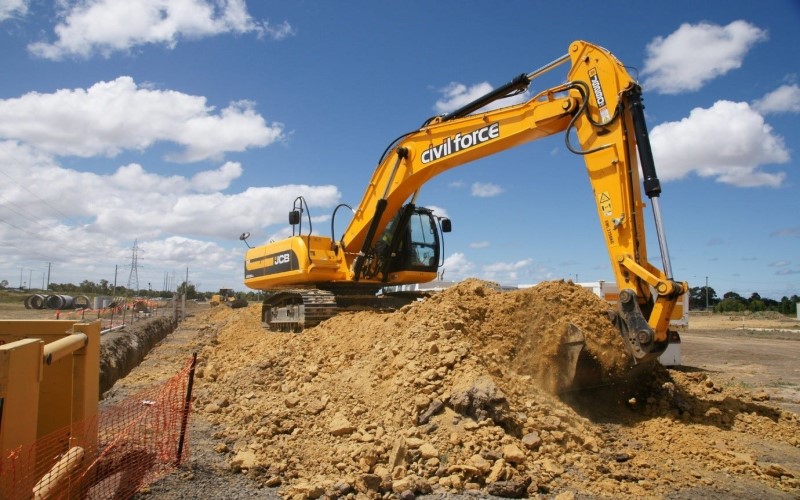Excavation Contractors: The Cornerstone of Construction and Landscaping Projects
Excavation contractors play a vital role in the construction and landscaping industries, providing the essential groundwork for everything from residential homes to large commercial buildings.
Their expertise in moving earth, digging foundations, and preparing sites is crucial to the success of any project.
This comprehensive article delves into the responsibilities of excavation contractors, the types of services they offer, how to choose the right contractor for your project, and the steps involved in the excavation process.
Understanding the Role of Excavation Contractors
1. What Do Excavation Contractors Do?
Excavation contractors are specialized professionals who use heavy machinery to move soil, rocks, and other materials to prepare a site for construction or landscaping. Their work is foundational, as it involves creating the stable base necessary for buildings, roads, and other structures. The tasks they perform can range from simple digging to complex site preparation and grading.
2. Key Responsibilities
- Site Preparation: Before any construction can begin, the site must be prepared. This involves clearing the land of trees, shrubs, and debris, as well as leveling the ground to create a stable base.
- Trenching: Excavation contractors dig trenches for the installation of utilities such as water lines, sewer systems, and electrical conduits.
- Grading: Grading involves shaping the land to ensure proper drainage and stability. It’s a critical step in preventing future issues like water accumulation or erosion.
- Foundation Excavation: For any building, the foundation is crucial. Excavation contractors dig out the area where the foundation will be laid, ensuring it is at the correct depth and on stable ground.
- Demolition: In some cases, existing structures need to be removed before new construction can begin. Excavation contractors may also handle demolition and debris removal.
Types of Excavation Services
1. Residential Excavation
Residential excavation services include preparing sites for new homes, digging basements, and creating driveways and landscaping features. These projects often require a high level of precision, as they are closely integrated with other aspects of home construction.
2. Commercial Excavation
Commercial projects, such as office buildings, shopping centers, and industrial complexes, require large-scale excavation work. This includes not only site preparation but also the creation of parking lots, drainage systems, and utility installations.
3. Road and Infrastructure Excavation
Excavation for roads, highways, and other infrastructure projects is another key service. This involves grading land to create a stable base for roads, as well as digging trenches for utilities and drainage systems.
4. Landscaping Excavation
Landscaping excavation involves shaping the land to create gardens, ponds, terraces, and other outdoor features. This type of excavation is often more aesthetic in nature, but it still requires careful planning and execution to ensure stability and proper drainage.
5. Erosion Control and Drainage Solutions
In areas prone to erosion or flooding, excavation contractors may be called upon to create solutions such as retaining walls, drainage ditches, and culverts. These projects help manage water flow and prevent damage to property.
The Excavation Process: What to Expect
1. Initial Consultation and Site Assessment
The excavation process begins with an initial consultation, where the contractor assesses the site and discusses the project’s requirements. This includes evaluating soil conditions, the slope of the land, and any existing structures that need to be removed.
2. Planning and Design
Once the site assessment is complete, the contractor will develop a detailed plan for the excavation. This plan outlines the sequence of work, the types of equipment needed, and any special considerations, such as the presence of underground utilities or the need for erosion control measures.
3. Permitting and Regulations
Before excavation can begin, the necessary permits must be obtained. Excavation contractors are familiar with local regulations and will ensure that all permits are in place. This step is crucial to avoid legal issues and ensure the project complies with all safety and environmental standards.
4. Site Clearing and Preparation
The first physical step in the excavation process is site clearing. This involves removing any trees, shrubs, and debris from the site. In some cases, existing structures may need to be demolished. Once the site is clear, the contractor will begin preparing the ground, which may involve leveling or grading the land.
5. Excavation Work
With the site prepared, the contractor will begin the actual excavation work. This involves digging, moving earth, and shaping the land according to the project’s specifications. For foundation work, the contractor will dig to the required depth and ensure the base is stable and level.
6. Trenching for Utilities
If the project involves installing utilities, the contractor will dig trenches for water lines, sewer systems, electrical conduits, and other necessary installations. These trenches must be dug to the correct depth and slope to ensure proper function and safety.
7. Backfilling and Compaction
Once the excavation work is complete and any utilities are installed, the contractor will backfill the excavated areas with soil. This soil is then compacted to create a stable base for construction. Proper compaction is essential to prevent settling and ensure the long-term stability of the structure.
8. Final Grading and Site Preparation
The final step in the excavation process is grading the site to ensure proper drainage and prepare it for construction. This involves shaping the land to direct water away from the building site and ensure that the ground is level and stable.
How to Choose the Right Excavation Contractor
1. Experience and Expertise
When selecting an excavation contractor, experience is one of the most important factors to consider. A contractor with a proven track record in similar projects will be better equipped to handle any challenges that arise. Ask potential contractors about their experience with projects like yours and request references from previous clients.
2. Licensing and Insurance
It’s essential to verify that the contractor is properly licensed and insured. Licensing ensures that the contractor meets the necessary qualifications and adheres to local regulations. Insurance protects you from liability in case of accidents or damage during the project.
3. Equipment and Resources
Excavation requires specialized equipment, from bulldozers and excavators to trenchers and compactors. Ensure that the contractor has access to the right equipment for your project and that their machinery is well-maintained and up-to-date.
4. Reputation and Reviews
Research the contractor’s reputation by reading online reviews and checking with local business bureaus. Positive reviews and a good reputation in the community are strong indicators of a reliable contractor. Don’t hesitate to ask for testimonials from past clients or visit previous job sites to see their work firsthand.
5. Cost and Budgeting
While cost should not be the sole determining factor, it’s important to get detailed quotes from multiple contractors to compare pricing. Be wary of quotes that are significantly lower than others, as this may indicate a lack of experience or hidden costs. Make sure the quote includes all aspects of the project, including labor, equipment, materials, and any potential additional fees.
6. Communication and Professionalism
A good contractor should communicate clearly and be willing to discuss all aspects of the project with you. They should provide regular updates on the progress and be open to addressing any concerns or changes that arise. Professionalism and transparency are key to a successful working relationship.
The Importance of Proper Excavation
1. Foundation Stability
The stability of a building’s foundation is directly tied to the quality of the excavation work. Improper excavation can lead to uneven settling, cracks in the foundation, and even structural failure. By ensuring that the ground is properly prepared and the foundation is laid on stable soil, excavation contractors help prevent these issues.
2. Drainage and Water Management
Proper excavation and grading are essential for managing water flow on a site. Poor drainage can lead to water accumulation around the foundation, causing erosion, basement flooding, and other issues. Excavation contractors design the site’s drainage system to direct water away from the building, protecting the structure and surrounding land.
3. Soil Erosion Prevention
In areas prone to soil erosion, excavation contractors play a crucial role in implementing erosion control measures. This may include creating retaining walls, installing drainage systems, and shaping the land to prevent the loss of soil and protect the integrity of the site.
4. Safety and Compliance
Excavation work involves numerous safety risks, including the potential for cave-ins, equipment accidents, and encounters with underground utilities. Professional excavation contractors are trained to manage these risks, ensuring the safety of workers and the surrounding area. Additionally, they ensure that the project complies with all relevant regulations and standards, reducing the risk of fines and legal issues.
Working with Excavation Contractors: Tips for Success
1. Clearly Define the Scope of Work
Before the project begins, clearly define the scope of work with your contractor. This includes the specific tasks to be performed, the timeline, and any special requirements or considerations. Having a detailed plan in place helps prevent misunderstandings and ensures that everyone is on the same page.
2. Establish a Timeline
Work with your contractor to establish a realistic timeline for the project. Be sure to factor in potential delays, such as weather conditions or unforeseen challenges. Regularly review the timeline to ensure that the project stays on track.
3. Maintain Open Communication
Maintain open and regular communication with your contractor throughout the project. This includes discussing any concerns or changes as they arise and being available to answer any questions the contractor may have. Good communication is key to a smooth and successful project.
4. Monitor Progress
While it’s important to trust your contractor, it’s also a good idea to monitor the progress of the work. Regularly check in on the site to ensure that everything is proceeding as planned and that the quality of work meets your expectations.
5. Be Prepared for Contingencies
Excavation projects can sometimes encounter unexpected challenges, such as hidden underground obstacles or adverse weather conditions. Be prepared for these contingencies by building some flexibility into your budget and timeline. Discuss potential scenarios with your contractor and agree on how they will be handled.
Conclusion
Excavation contractors are essential to the success of any construction or landscaping project. Their expertise in site preparation, foundation work, and land grading ensures that your project starts on solid ground. Whether you’re building a new home, creating a landscaped garden, or developing a commercial property, choosing the right excavation contractor is crucial to achieving your goals.
By understanding the role of excavation contractors, the services they offer, and the steps involved in the excavation process, you can make informed decisions and ensure that your project is completed efficiently and effectively. With the right contractor by your side, you can build with confidence, knowing that your project is supported by a strong and stable foundation.






